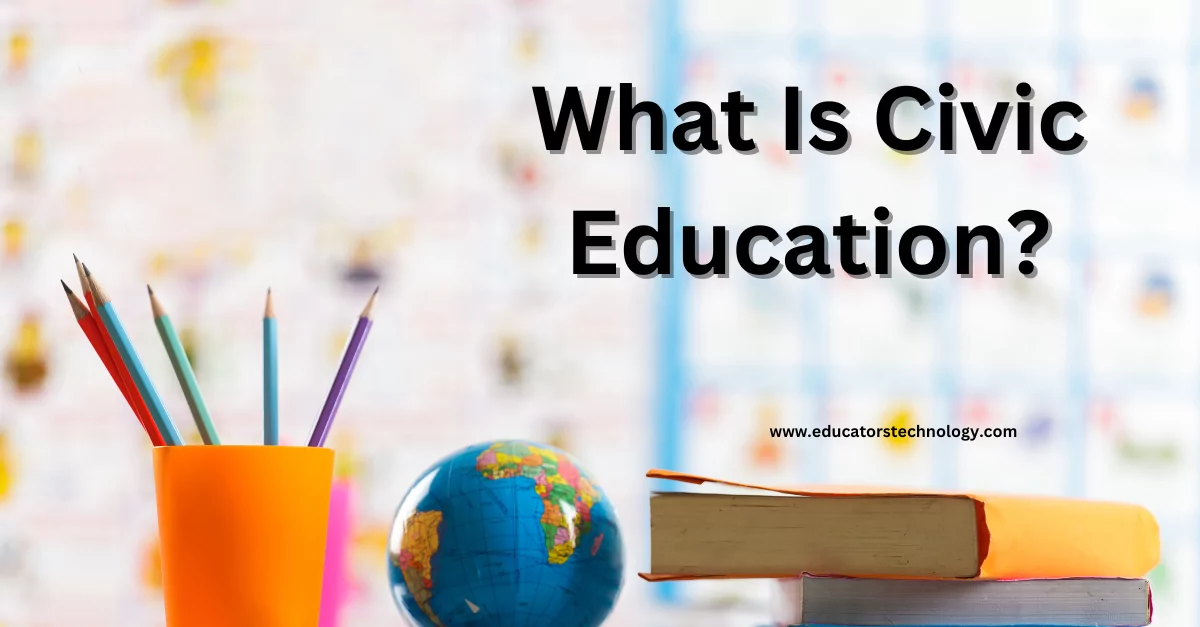Civic education is an essential component of a healthy democracy because it helps citizens understand the rights and responsibilities associated with being an active participant in society. Informed citizens can make informed decisions, hold public officials accountable, and take action to improve their communities and nation.
In this post, I will cover the importance of civic education, its benefits and components, and discuss some of its types.
What is civic education?
According to Stanford Encyclopedia of Philosophy, Civic education refers to “the processes that affect people’s beliefs, commitments, capabilities, and actions as members or prospective members of communities.” Civic education aims to cultivate values such as democracy, individual freedom and responsibility, human rights, respect for cultural diversity, mutual understanding and cooperation among people.
Civic education topic
- Civic education covers a wide range of topics, including:
- Understanding the basic principles of democracy and the rule of law
- Knowledge of the structure and functioning of government and political institutions
- Awareness of individual rights and responsibilities, as well as social and political issues
- Development of critical thinking and problem-solving skills to evaluate information, make informed decisions, and engage in public discourse
- Encouraging active participation in civic activities, such as voting, volunteering, and engaging with elected officials
- Promoting a sense of shared identity, values, and tolerance for diversity within a democratic society
Civic education can take place in formal settings, such as schools and universities, as well as informal settings, like community organizations, media, and family conversations. The ultimate goal of civic education is to create an informed and engaged citizenry capable of sustaining and improving democratic societies.
2. Components of Civic Education
The components of civic education include knowledge and understanding of the history, law, politics, economics, and geography of one’s nation or global community; critical thinking skills needed to analyze public policy debates; an appreciation for diversity; the ability to take constructive action on public issues; and the capacity to make responsible decisions in the public interest.
While civic education often focuses on the national level, it can be applied to local and global issues as well. For example, knowledge of the geography and economics of different countries is essential for understanding global issues such as trade, migration, and climate change. Similarly, knowledge of local laws and regulations can help citizens understand how their actions will impact their communities.
3. Benefits of Civic Education
The benefits of civic education are numerous. First, civic education can help individuals gain a better understanding of their community, nation, and world. It can foster the growth of informed citizens who are willing to take part in decision-making processes and actively contribute to the public good.
Civic education encourages civic participation and develops the skills needed to participate effectively in public life. Additionally, it promotes tolerance and mutual understanding among diverse peoples, resulting in a more peaceful and just society. Finally, civic helps individuals become more responsible citizens who can make decisions that are beneficial to all of their community.
4. Types of Civic Education Programs
Civic education can be classified into several types based on the content, approach, and context in which it is delivered. Here are some common types of civic education:
1. Formal civic education
2. Informal civic education
3. Experiential civic education
4. Deliberative civic education
5. Comparative civic education
7. Values-based civic education
These types of civic education often overlap and complement one another, creating a comprehensive and multifaceted approach to fostering civic knowledge, skills, and engagement. By learning about and engaging in civic life, individuals can become more informed and active citizens who help shape their communities and the world.






